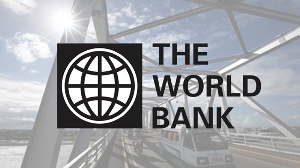The World Bank has said the COVID-19 global recession is expected to be reflected in the sharpest contractions in six decades in many indicators of global activity.
Most notably, the World Bank said, while services-related activities were often relatively resilient during previous global recessions, high-frequency indicators suggest that the COVID-19 shock has led to a near sudden stop in a large swath of services, reflecting both regulated and voluntary reductions in human interactions that could threaten infection.
The Bretton Woods institution in it June 2020 Global Economic Prospects report noted current forecasts suggest that partly owing to an unprecedented weakening in services-related activities, global trade and oil consumption will see record drops this year, and the global rate of unemployment will climb to its highest level since at least 1965, when available data begins.
In addition, industrial production and retail sales are likely to register record drops this year.
The current forecasts indicate that global economic recovery is expected to gain momentum next year, with a rebound in world output similar in gradient to those following prior global recessions, and global employment and oil consumption recovering strongly.
However, this rebound would not be enough for output to return to its pre-recession trend level. The delay in return to the trend level of global output is consistent with longlasting hysteresis effects associated with deep recessions.
The report further said beyond the unprecedented near-term damage, COVID-19 will likely dampen long-term growth, as exemplified by previous severe epidemics. The long-run loss in output growth would be compounded if the current recession triggers financial crises.
For these reasons, once the immediate health emergency abates, setting the stage for a robust recovery will require policies that deal with the lingering effects of the pandemic.
The immediate need is to implement a comprehensive set of policies to alleviate solvency strains, and, where necessary, prevent bankruptcies of firms that will be viable in the long run without infringing on the integrity of private ownership.
Where possible, support can be employed to invest in digital infrastructure to ensure uninterrupted provision of critical services to a broad set of households, including those in the informal sector, while facilitating wider adoption of these technologies.
In the medium term, a renewed emphasis on structural reforms and inclusive and environmentally sustainable post-disaster investments, as well as the development of sound fiscal policy frameworks, institutions, and business environments, can help establish a robust and resilient recovery.
Structural reforms need to be carefully calibrated to unique country circumstances, as productivity gains will heavily depend—among other factors—on their timing, mix and sustainability.
Such reforms include policies to promote investment in physical and human capital, including green infrastructure; reallocation toward more productive sectors; and greater rates of technology adoption. Reforms to reduce excessive regulations and litigiousness could also be pursued. In the case of oil exporters, persistently lower world oil prices reinforce the need for economic diversification, subject to market forces.
This would increase long-term growth and enhance resilience to external shocks. Lastly, policymakers can develop new insurance frameworks that enhance the quality and transparency of risk-sharing during systemic economic disruptions.
Global coordination and cooperation
The pandemic underscores the crucial value of global coordination and cooperation in public health as well as in economic policy.
Cooperation across governments, and between governments, non-governmental organizations, and the private sector is necessary to help build domestic capacity to detect and respond to health crises, as well as develop and disseminate global public goods such as vaccines.
Global coordination is vital for transferring health supplies and expertise where they are most needed in the near term, and to develop a coordinated exit strategy from restrictions on the free movement of people in the medium term. Moreover, the unprecedented common economic shock adds to the growing evidence of the gains from coordinating monetary and fiscal actions across countries.
In late March, the G7 pledged to “do whatever is necessary to restore confidence and economic growth and to protect jobs, businesses, and the resilience of the financial system” Department of the Treasury 2020).
Many fiscally constrained Emerging market and developing economies (EMDEs) will benefit from the coordinated support of G20 countries and multilateral organizations. International financial institutions can adopt a two-phase approach to their policy response.
In the first phase, rapid policy support can be deployed to help provide the fiscal resources necessary to protect the most vulnerable, keeping firms and jobs in place. For example, bilateral creditors might suspend debt payments from low-income countries that request forbearance. In the second phase, a policy should focus on ensuring a strong and sustainable economic recovery, seizing the opportunity to increase investment in infrastructure, human capital, and growth-enhancing institutions—each of which has an important public health dimension.
Click to view details



Business News of Monday, 13 July 2020
Source: laudbusiness.com

















